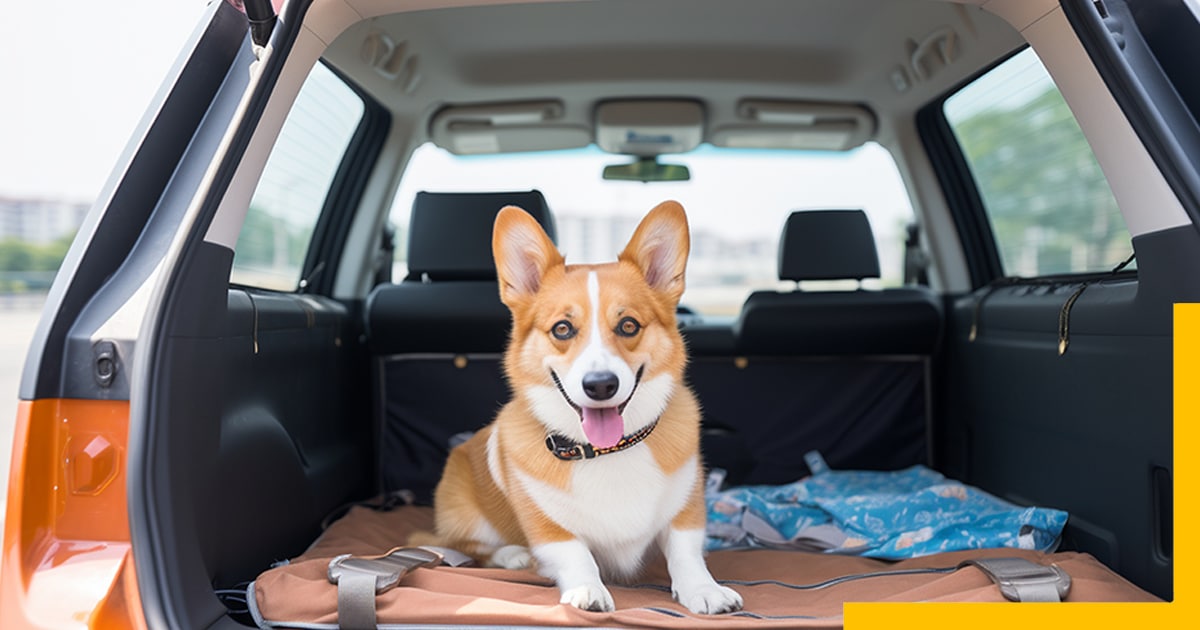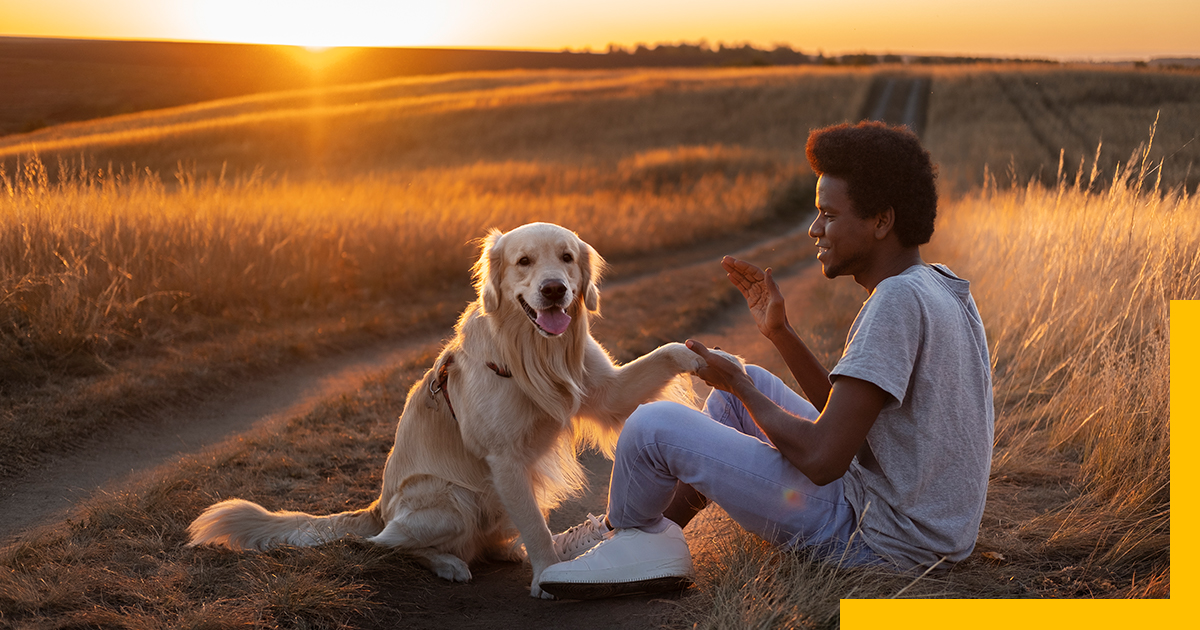Tips on How to Travel with Puppy for a Pawsome Adventure
Travelling with a puppy can be a delightful experience, but it takes some preparation to ensure a smooth and amusing trip for both you and your furry friend. Whether it’s a quick car ride or a long-distance journey, knowing how to travel with a puppy successfully will minimise hassle and maximise bonding time.
This blog will guide you through everything you need to know about travelling with a puppy – from a traveling trial run to packing essentials and safety considerations and managing potty breaks to controlling travel anxiety.

Contents
Useful Tips and Tricks on How to Travel Stress-Free with Your Pup?
Undoubtedly, Puppies make fantastic travel companions. However, venturing out on a road trip with your little buddy can be stressful at times if you don’t plan your journey carefully. Let’s take a look at some protocols you should follow to master the art of how to travel with a puppy in a car.
Take a Test Drive
Travelling can be great for your pup. It has significant benefits. It helps them to get used to new places and people. This is quite necessary for their development and well-being. But there’s no need to rush. Your little furry friend needs time. The success of your journey depends massively on your puppy’s age and lifestyle.
Before you set out for the big trip, take your puppy on a short car drive. This will help you analyse if they get scared or crazy. After all, cars are unusual and new for puppies. Also, ensure to see if they drool, whine, or pant during this ride. If yes, then they might need extra pupping training to feel comfortable during the journey.
And don’t forget to follow all the safety measures during the ride. Use a crate or special dog seatbelt to keep them safe.

Visit your Pup’s Vet
Before heading out for your trip, take a step back and ensure that your puppy is healthy enough to travel long distances in a car. When you’re planning to travel far from home, do check if your pup is fully vaccinated to fight against diseases like Pravo, Distemper, Kennel Cough, Parainfluenza, Hepatitis, and Rabies.
You might also need to get your little fur ball vaccinated against Lyme disease, Canine influenza, and Leptospirosis. However, these vaccines are not necessary as it depends on where you’re from and where you plan to travel.
Inquire from your pup’s doctor regarding all the safety measures you need to take before hitting the road so you don’t end up coming back from your trip early with a sick puppy.
Inquire About Calming Supplements
Some off-the-rack product manufacturers claim to produce supplements that help to calm down a fussy and unhappy puppy during travel. Many dog owners often find these calming supplements helpful, especially for dogs who get anxious and scared.
But be careful, friends! Not all calming products you find in the stores are safe for puppies. If your puppy becomes too relaxed or drowsy, it stops eating or drinking, which can be dangerous as it could get sick.
Some products with turmeric or CBD might also interfere with any medicine your puppy is already taking. Always talk to your vet before giving anything new to your puppy to make sure it’s safe.
Pack up Puppy Travel Essentials
Once you’re all set and your pup is ready for the ride then, start gathering all the gear that you may need during the road trip. Following is the list of items you should pack:
- Dog barrier or crate
- Dog seatbelt and harness
- Two to three leashes
- Poop bags
- Collapsible food and water bowls
- Baby wipes
- Favourite food and treats
- Bed or blanket
- Toys
- Doggles
- First aid kit for pet
Yes, we know the list is quite long, but for most of the items you already own, you might have to buy a few of them.
Take your Pup’s Credentials
As you need your passport, I.D., or driving license for travelling, your puppy should also travel with their important documents. Gather all the necessary documents and records when you’re travelling. You need to pack:
A recent photograph: Of course, you’ll never let your little friend out of your sight, but in case he gets lost, the photo will help you and others to locate them easily.
Medical records: God forbid your puppy gets sick during the trip and needs medical attention immediately. These records will help the veterinarians to analyse the problem while considering the current health.
Microchip: You also need to make sure your puppy’s microchip is up to date and fully registered. Do check your contact information to ensure it’s the most recent one.
Choose the Right Climate
Neither puppies nor grown-up dogs can handle cold or hot temperatures. This is why make sure your puppy’s travelling location is just right – not too hot and not too cold. If you’re comfortable, it doesn’t mean your tail wager is too.

Planes can be chilly under the seats, where your puppy’s carrier goes. Bring a puppy’s blanket or shirt for them to snuggle with. But do keep an eye on them as too much heat can be dangerous as well, especially in the car, where the backseat can get boiling hot if you’re travelling during summer.
It’s a good idea to stop for water breaks. Taking a cooling pad on the trip for your puppy can help, too.
Helpful tip: Let your puppy sleep with their blanket or shirt the night before. Your smell on it will help them feel calm and prepare them for the expedition.
Schedule Potty Breaks
Your travel buddy’s bladder is small, just like theirs, and because of that, they cannot hold their pee for extended periods. That’s why making frequent stops is important to prevent messy accidents. Road trips are all about a lot of sitting, which makes dogs a little fussy. Providing potty breaks will help them to stretch a little and release all the pent-up energy.
Additionally, these breaks offer mental stimulation through new sights, smells, and experiences, which aids their development and prevents boredom.
Pack their Favorite Snacks and Toys
Familiar toys like their Kong Puppy Dog toy or others provide a sense of comfort and security in an unfamiliar environment. It also helps in reducing stress and anxiety. Toys can offer entertainment for long stretches so you can drive carefree.
Also, giving them their favourite treats for behaving well during the trip creates a positive association with travelling. Treats work as a good source of distraction. Taking these comforting and familiar items will make your road trip a more enjoyable experience for them.
Know the Hotel’s Pet Rules
Many hotels with open arms welcome furry friends, but they have set guidelines to keep everyone staying there happy, comfortable, and safe. At the same time, some hotels are super picky. They only allow certain types or sizes of pets. Before making a booking, check the details to ensure your travel buddy is welcome there.
You should also know that that hotels charge pet fees, and some have designated special rooms where your pet can sleep. So, read those policies thoroughly to avoid any surprise charges.
P.S. Those readers who own other furry friends (a cat) should check out our helpful insights on travelling long distances with a cat.
End Note
So that’s all about how to travel with a puppy on a road trip. We know some of you might find it very stressful and would prefer to leave your furry pal at home. Of course, you can do that, but it might make them sad. While some often choose to use the pet cargo service.
You can opt for it, but pets don’t like it because people working in the cargo departments treat animals very badly, plus they are on their own, which can make them fussy. So, it’s better that you prepare a little in advance and take your puppy on a road trip with you. We can assure you it will be the best road trip you’ll ever have in your entire life.
Frequently Asked Questions
At what age can you travel with a puppy?
As per USDA regulations, a pup should be at least old before they start travelling around.
Can you take your puppy on a plane?
As per policies, a puppy who is eight weeks old and weaned for five days is allowed to be on board. As per the CDC laws, all dogs entering the USA should be vaccinated against rabies. Also, there might be size, age, or breed restrictions on different airlines.
How stressful is travelling by road for dogs?
Travelling by road can be challenging for both the owner and the dog. You need to plan in advance and prepare everything you might need during the trip before hitting the road.
How do I take my dog on a long road trip?
Check with your dog’s vet and pack all necessary items you’ll be needing during the trips, such as food, water, disposable bowls, collar, leash, motion-sickness bags, toys, supplements, medical records, and most importantly, their recent photograph and a collar with their name tag.



